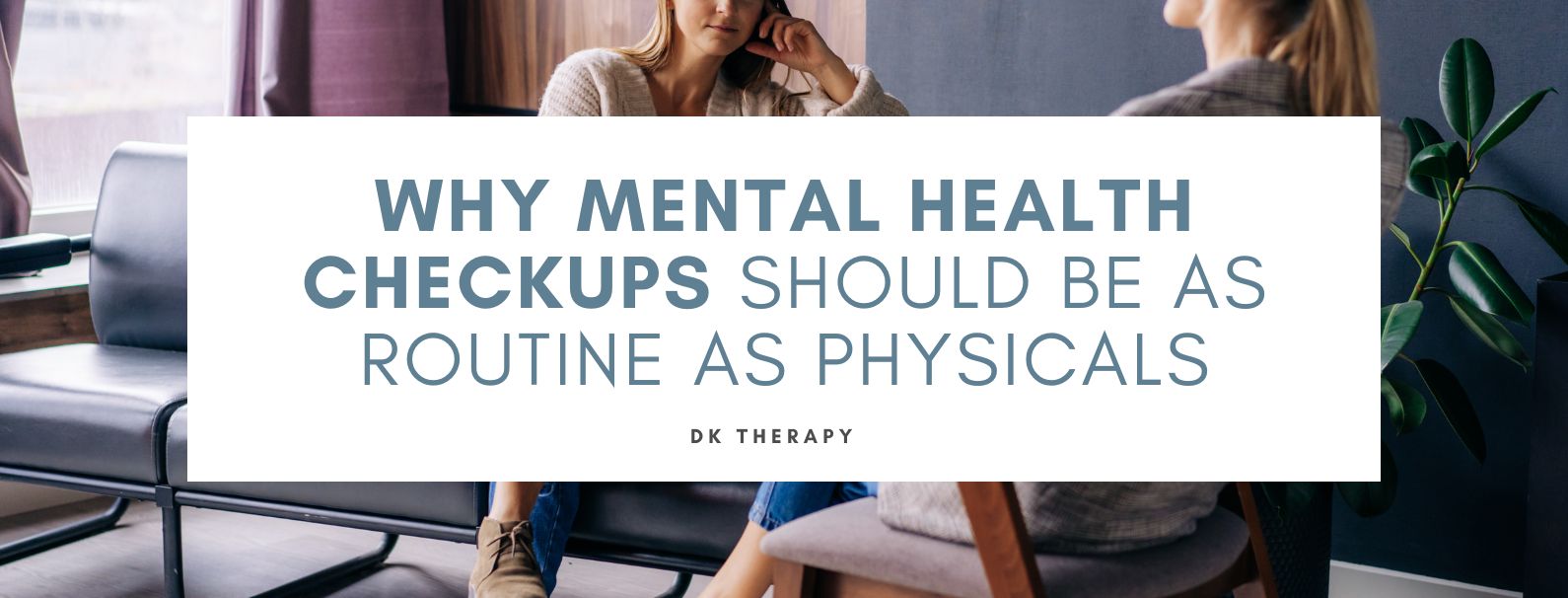
When was the last time you went to the doctor for a checkup? For many Americans, routine healthcare is not just a matter of scheduling. It often depends on financial constraints, limited access, or lack of time available. And while routine physicals are widely encouraged to catch potential health issues early, mental health rarely receives the same level of attention. For many, emotional well-being doesn’t feel important unless something has gone seriously wrong.
But mental health is health, and mental health checkups to check in on our mental state should be as routine and accessible as taking care of our bodies.
Mental Health Needs Aren’t Always Obvious
 Mental health issues often show up gradually. You may start sleeping less, feeling irritable, withdrawing from social situations, or struggling to concentrate. At first, it’s easy to brush these signs off as just another part of your busy work culture. But over time, stress, anxiety, and depression can affect nearly all facets of life, including relationships, work performance, and physical well-being.
Mental health issues often show up gradually. You may start sleeping less, feeling irritable, withdrawing from social situations, or struggling to concentrate. At first, it’s easy to brush these signs off as just another part of your busy work culture. But over time, stress, anxiety, and depression can affect nearly all facets of life, including relationships, work performance, and physical well-being.
Having regular mental health check-ins (whether with a provider or through accessible mental health apps) can help identify these issues early on.
Addressing Stigma with Mental Health Checkups
Despite growing awareness, the stigma around mental health still exists. Many people feel like they have to be in crisis before they can reasonably seek help. Making mental health checkups more routine can help challenge this way of thinking. You don’t have to be at rock bottom to need help.
These check-ins don’t always require a therapist’s office. For some, check-ins might start with an honest conversation with a trusted friend, a mental health screening through an employer wellness program, or accessing low-cost community resources.
Take A Preventive Approach
When it comes to healthcare, prevention is always better than reaction. That same principle applies to mental health. Regular check-ins can help people manage their ongoing stress levels to prevent burnout and develop healthier ways to handle change. Preventive efforts may also make it easier to manage conditions like anxiety or depression.
Even if you can’t afford to attend weekly therapy sessions, scheduling check-ins throughout the year or during major life transitions can help you stay grounded.
The Mind-Body Connection Is Real
Mental and physical health are connected. Stress can increase your risk for heart disease. Depression can be a detriment to sleep, appetite, and immune function. Anxiety can lead to headaches, fatigue, and digestive issues.
In fact, many primary care doctors now screen for common mental health concerns during physical exams, especially if you mention trouble sleeping, mood swings, or constant worry. Speaking up during those appointments can be a first step toward maintaining your mental well-being.
Making Mental Health More Accessible
Not everyone has easy access to therapy, and mental health care in the U.S. can be expensive. But there are options. Some community health clinics offer mental health services on a sliding scale. Some workplaces provide Employee Assistance Programs (EAPs) that include free counseling sessions. There are also reputable online platforms offering lower-cost therapy and self-guided tools.
Even small steps like journaling, trying guided meditations, or joining a virtual support group can help support your emotional needs.
Mental health checkups don’t have to be expensive weekly appointments. They can be small but consistent acts of self-care that keep you aware of how you’re really doing. Even a five-minute pause to reflect, journal, or reach out to someone you trust can make a difference. Over time, these check-ins can help you notice and react accordingly when something feels off.
If you’re struggling and you’d like to work with a mental health professional, contact DK Therapy to book an appointment with our office.




